Why have so many prime ministers gone to Oxford University?
- Published
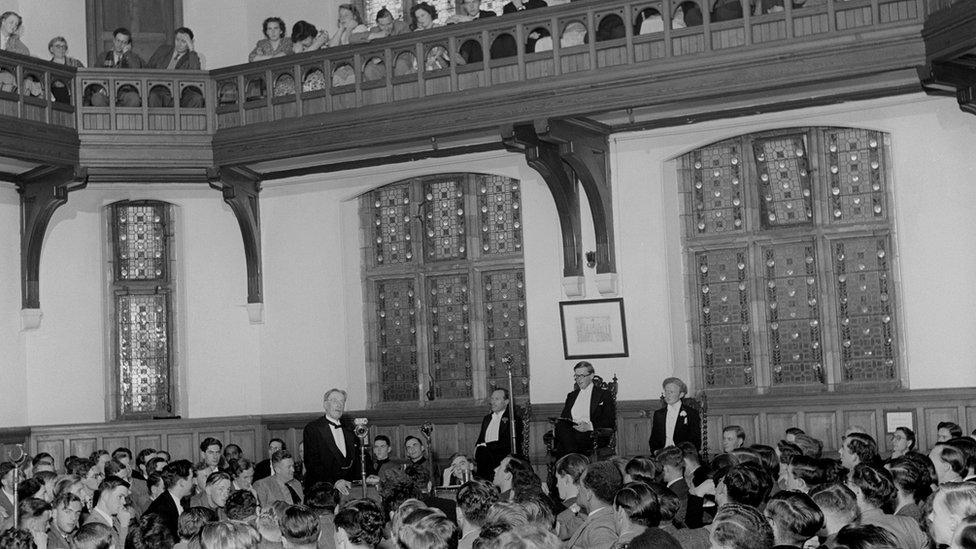
The famous Oxford Union debating chamber in 1948
What has Theresa May in common with Clement Attlee, Edward Heath and Tony Blair? Yes, they've all been prime minister, but they also all went to Oxford University. Actually, make that almost every general election-winning leader since World War Two.
Since Robert Walpole, who is generally regarded as the UK's first prime minister, there have been 54 heads of government and 27 were educated at Oxford, external, compared with Cambridge, the runner-up with 14.
With a new crop of Oxford undergraduates arriving for freshers' week it seems a prime minister of the future is likely to be among them.
So what is it about the university? And how has it shaped the nation's politics?
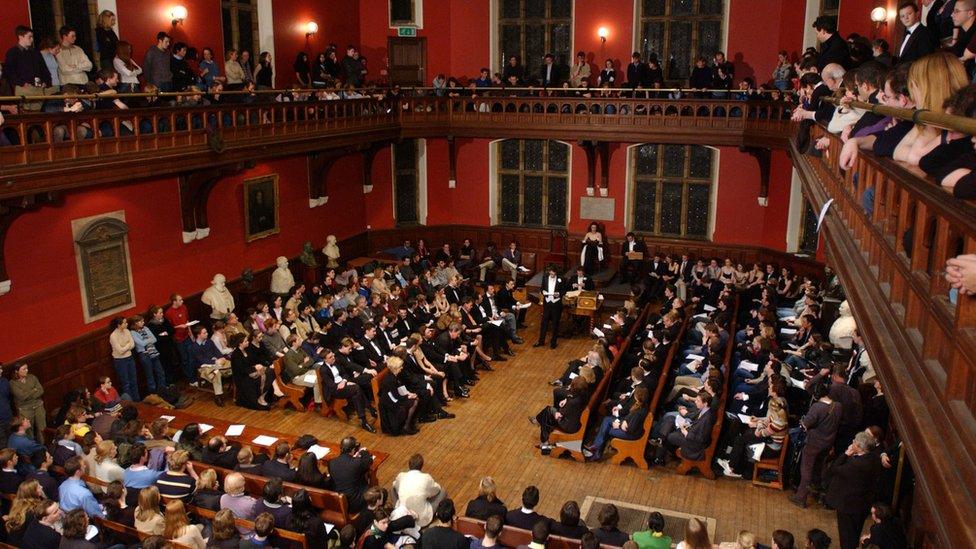
The Oxford Union intentionally resembles the House of Commons
Part of the reason is the world-renowned Oxford Union debating society.
"People learn that if you come to Oxford and perform well in the Union, you make the contacts, and you will get into politics," says Prof Geoffrey Evans, of Oxford's Nuffield College.
"So it becomes a self-fulfilling prophecy."
Harrison Edmonds, the current president of the Oxford University Conservative Association, says the Union's debating style is "focused very much on the House of Commons".
"I think there's an explicit link with the idea that the Oxford Union is the place where these parliamentarians of the future cut their teeth and learn how to debate," he says.
"That's where the kind of showbiz side of things is done and that's where people with real ambition gravitate towards."
Writing in the days after the Brexit vote, Financial Times journalist Simon Kuper, who was at the university at the same time as David Cameron and Boris Johnson, external, said the politics of the Union were reflected in the EU referendum debate.
He said it was "a kind of children's parliament" and added: "The traditional climax of a Union election was one Etonian backstabbing another for the presidency."
Lord Heseltine, the Conservative party grandee and famed almost-prime minster, studied at Pembroke College and joined the Oxford Union and the Oxford Conservative Party Association on his first day there.
As a schoolboy, he had mapped out his future on an envelope - a millionaire in his 20s; MP in his 30s; Tory front bench in his 40s and Downing Street in his 50s.
At Oxford, Lord Heseltine rose to become president of the debating society, and said his time at Oxford made "a very significant contribution" to his success as a politician.
"Oxford presents every opportunity for political exchange and competition; the political parties are very active in their student equivalents," he said.
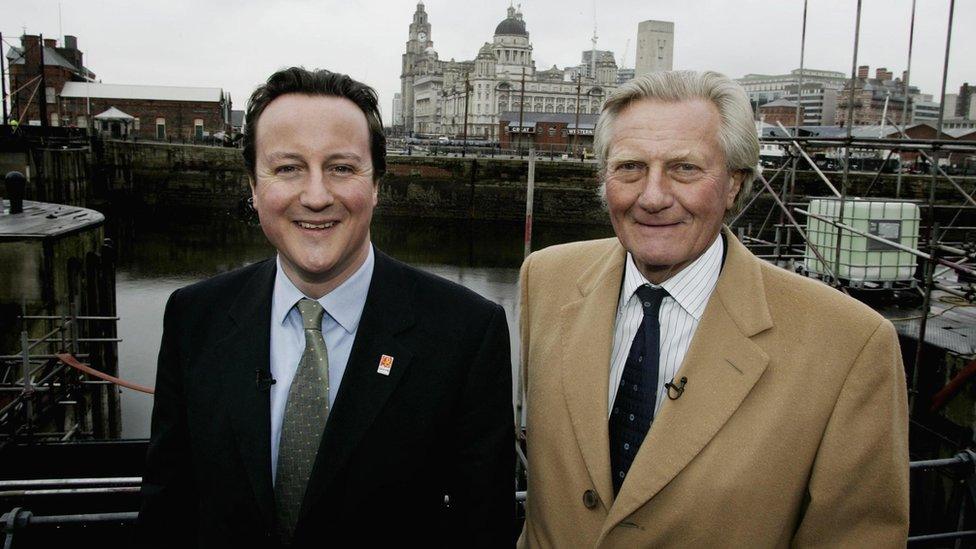
Lord Heseltine was an early backer of former Prime Minister David Cameron, who studied at Oxford's Brasenose College
"Just the experience of being able to spend so much time in a world where you met other politicians, not just as students but also as speakers."
He remembers future politicians Jeremy Thorpe and Bryan Magee being eloquent during debates and was also impressed by Labour's Aneurin Bevan when he visited as a guest speaker.
"There are hugely impressive opportunities for undergraduates to meet people at the top of their tree, and that includes household names in the world of politics."
It is not just Oxford University that stands out for having educated a disproportionate number of future prime ministers.
Out of the UK's 54 heads of government, 27 went to Oxford, 19 went to Eton, 13 went to both, and of those, nine ended up in Christ Church College, which historically has strong ties with the public school.
"One effect of going to Eton and going to an Oxford college is that the impetus to go on and do something big is very high. You will know that people have gone on to achieve great things," says Oxford University professor of social geography Danny Dorling.
"Whereas if you went to a normal school you are unlikely to even become an MP, let alone prime minister - it's harder to imagine."
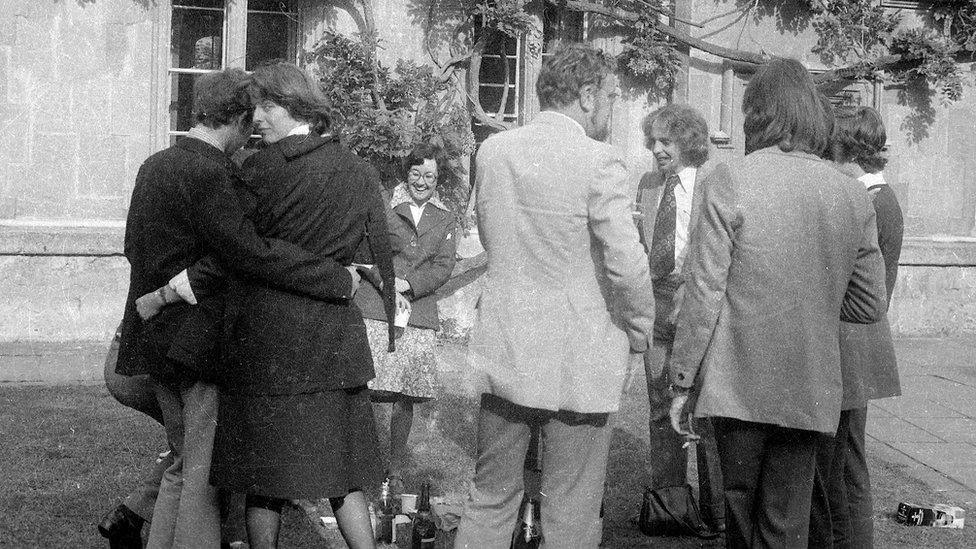
Theresa May studied geography at St Hugh's College
But despite the widespread belief that a degree in politics, philosophy and economics (PPE) is essential to a career in politics, meeting the right people is far more important, says Prof Evans.
"Very few prime ministers have done PPE at Oxford, but you do need to be in this environment and develop networks, that seems to really help."
He added: "Oxford just represents the very pinnacle of an education system designed to exclude people who don't have the right connections, schools, background, training.
"The process of social exclusion starts early in life and continues through the entire education system, so the students that Oxford selects from reflect disparities in attainment that accumulate from an early age."
Prof Dorling said: "The UK is a very, very socially divided country, and it has been for a long time. We draw our leaders from a very small group of people.
"There is also a kind of cosying effect later on, where those at the top are likely to have these backgrounds."
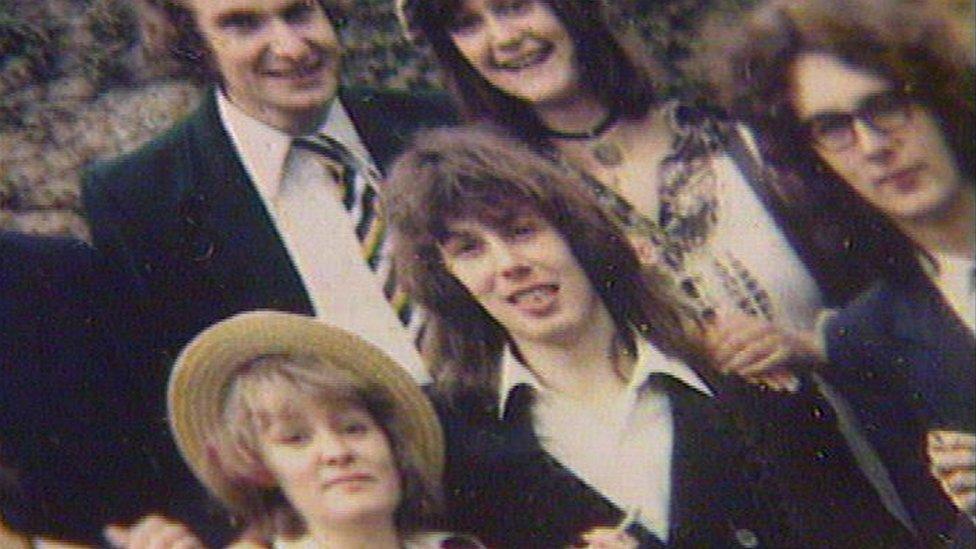
Tony Blair was a student of jurisprudence at St John's College
In a statement, an Oxford University spokesman said: "Oxford is absolutely committed to selecting undergraduates on the basis of academic ability and potential - regardless of background or access to resources.
"Our latest intake figures show more than 59% of UK offers went to students from state schools - the highest in at least four decades."
And Lord Heseltine says he is not worried about so many political leaders coming from Oxford, as long as they are "up to the job".
"There's nothing to say that you are going to succeed and persuade a significant political party to vote for you, just because you came from Oxford."